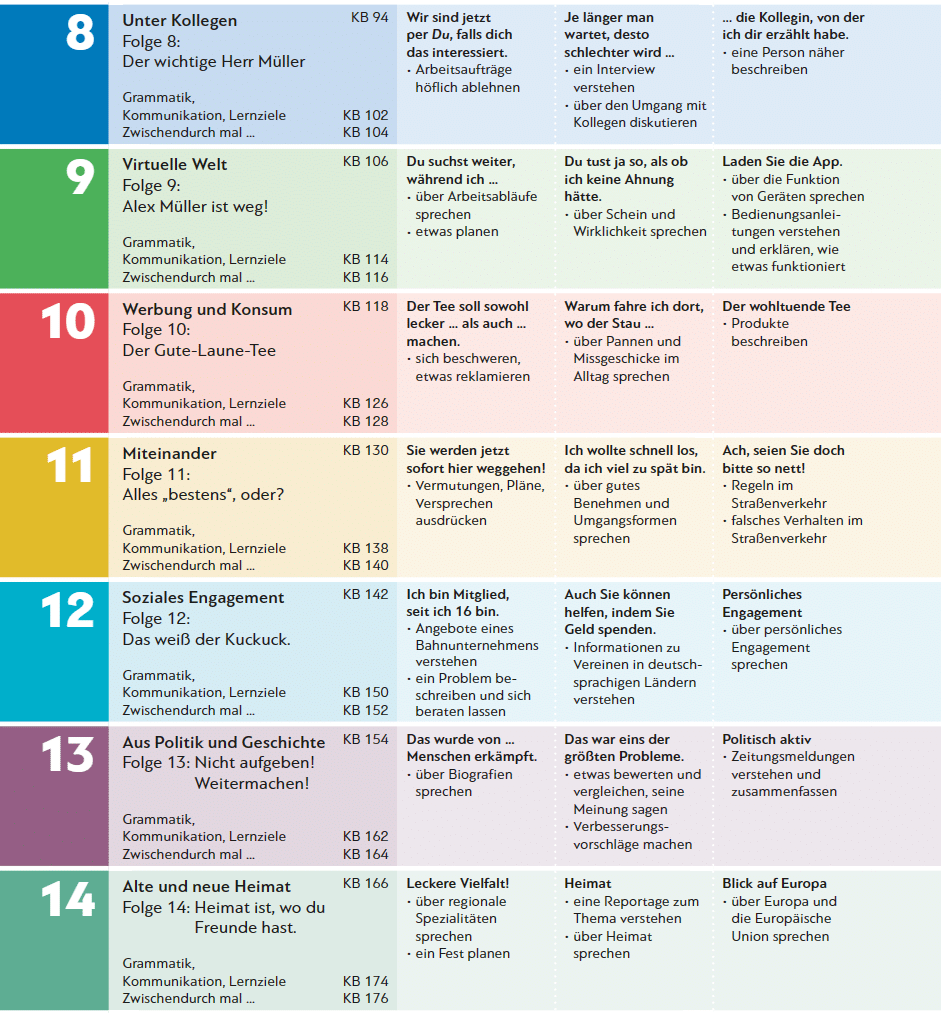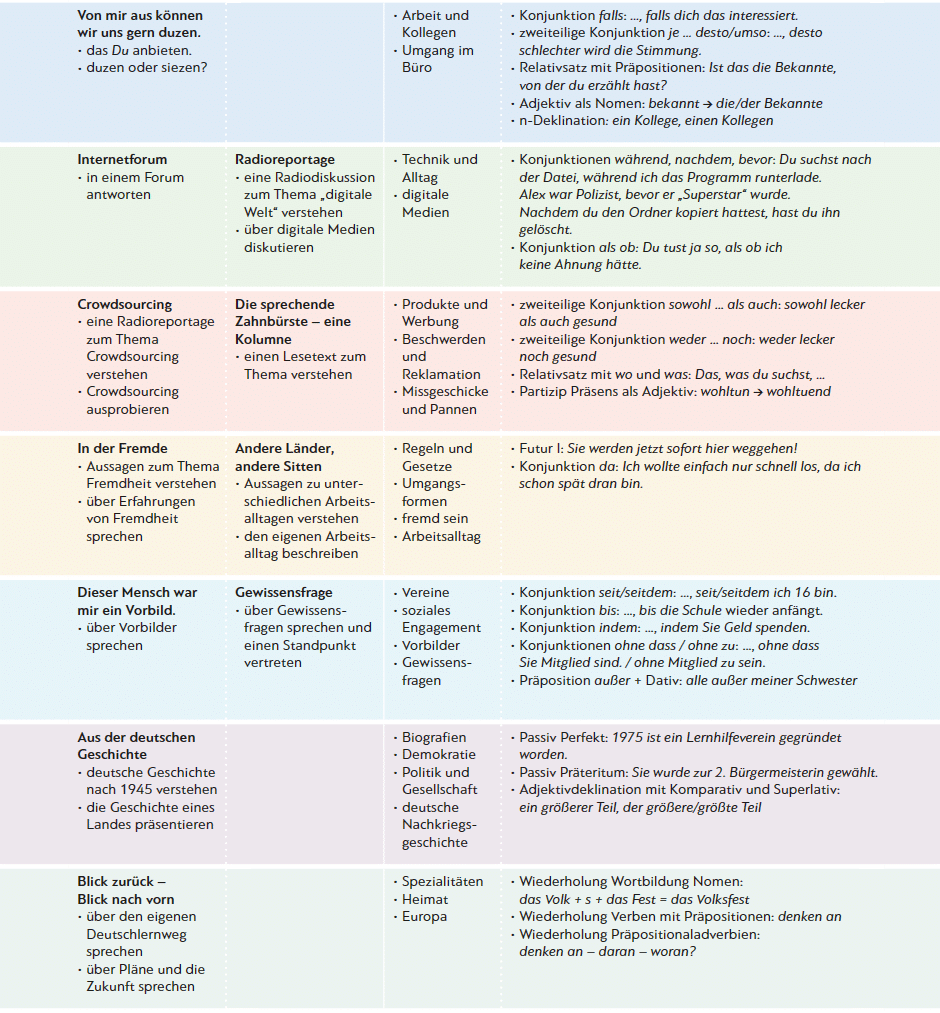German – Intermediate (CEFR B1.2)

About Course
Take the next step in your journey to fluency with Part 2 of our Intermediate Course and we’ll have you describing your plans, goals, hopes, and dreams in German.
Among many other things, topics include your daily routine, i.e. work, study, and leisure. You’ll learn to speak in different contexts, express personal opinions, and discuss experiences.
To start with this level, you are expected to already have some elementary-to-intermediate knowledge of German. This course is ideal for people who have recently completed a B1.1 course or received this recommended level on our placement test.


How Does it Work?
These levels are classified as A1 for beginners, A2 for elementary, B1 for intermediate, B2 for upper intermediate, C1 as advanced, and C2 as mastery.
CORE Languages, like many other language schools, splits these levels in half to accommodate students’ time and budget planning (e.g. level A1 is split into A1.1 and A1.2). This framework is one of the best to learn German for beginners.
To start with level B1.2, you are expected to have knowledge of all levels through German B1.1.
What Does it Mean for You?
After completing level B1.2, you’ll be able to:
- understand the main points of clear standard input on familiar matters regularly encountered in work, school, leisure, etc.
- deal with most situations likely to arise while traveling in an area where the language is spoken.
- produce simple connected text on topics that are familiar or of personal interest and describe experiences and events, dreams, hopes and ambitions and briefly give reasons and explanations for opinions and plans.
What You’ll Learn
At CORE Languages, as part of the B1.2 curriculum you will learn the following (and more):
Talking about games and conditions; Talking about being formal and informal in German; Speaking about people; Reading classified ads; Describing people; Talking about relationships; Offering the “du”; Expressing “seemingly” and “as if” in German; Talking about concurrent actions; Making decisions; Asking for help; Explaining things; Showing understanding; Giving advice; Reacting surprised or critical; Expressing agreement; Expressing disinterest; Asking for help; Commenting; Talking about products; Complaining about products and services; Telling stories; Expressing problems; Describing marketing campaigns; Talking about future actions; Convincing or persuading someone; Refusing apologies; Talking about behavior; Talking about different cultural norms; Acting like a good guest in Germany; Introducing explanations; Evaluating and assessing; Asking for aid; Calming people down; Offering solutions; Speaking with police; Speaking at the lost and found; Talking about rental issues; Analyzing pictures and cartoons; Talking about role models; Comparing things; Reading newspaper articles; Talking about political issues in Germany; Asking for opinions; Talking about history; Describing countries; Presenting advantages and disadvantages; Expressing wishes and desires.
Course Content
Introduction
-
Welcome to German B1.2
Helpful Content for this Course
Chapters
Student Ratings & Reviews
